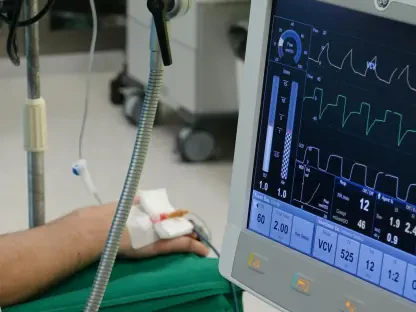In a startling revelation that has sent ripples through the scientific and political communities, a recent government watchdog report has exposed illegal actions by the Trump administration in slashing billions of dollars in biomedical research grants managed by the National Institutes of Health (NIH). This decision, which delayed and canceled critical funding, has raised alarms about the integrity of federal spending protocols and the potential setbacks to life-saving medical research. The Government Accountability Office (GAO), in its detailed findings, determined that these actions breached federal law, specifically the Impoundment Control Act (ICA), which requires congressional notification before altering appropriated funds. As the debate unfolds, the clash between executive overreach and legislative authority takes center stage, with significant implications for public health advancements. This issue not only highlights procedural violations but also underscores broader concerns about the independence of scientific inquiry in the face of ideological agendas.
Legal Violations and Funding Cuts
Unlawful Delays in NIH Grants
The GAO report meticulously outlines how the Trump administration’s directive led to a staggering reduction of approximately $8 billion in NIH research grants and awards during a critical period between February and June. This drastic cut, compared to the previous year, was accompanied by the termination of over 1,800 active grants, many of which supported vital studies in areas such as Alzheimer’s disease and mental health. The administration’s focus on eliminating funding for projects tied to equity, diversity, and inclusion initiatives drove these decisions, bypassing the legal requirement to inform Congress of such changes. Under the ICA, any delay or cancellation of congressionally approved funds must be reported, a step that was entirely neglected. This unilateral move has been widely criticized as a violation of established protocols, setting a dangerous precedent for how federal appropriations can be manipulated without oversight, ultimately threatening the stability of research institutions reliant on consistent funding.
Executive Overreach and Congressional Authority
Beyond the immediate financial impact, the core issue lies in the tension between executive power and congressional control over federal spending. The GAO emphasized that the Department of Health and Human Services (HHS), which oversees NIH, failed to provide any legal justification for the initial pause in grant reviews or the subsequent withholding of funds. From late January to early March, grant reviews were temporarily suspended, causing delays in funding to hospitals and universities. Even though HHS later claimed to have accelerated the process by scheduling hundreds of peer review meetings, the lack of transparency during the initial halt drew sharp criticism. The report makes it clear that changes to NIH appropriations must involve Congress, not unilateral executive decisions. This breach has sparked a broader discussion about the checks and balances essential to maintaining democratic governance, especially when public health research hangs in the balance, vulnerable to political whims rather than scientific merit.
Stakeholder Reactions and Future Implications
Political and Legal Backlash
The response from Democratic lawmakers and affected researchers has been swift and resolute, with figures like Senator Patty Murray of Washington leading calls for the full restoration of NIH funding as mandated by Congress. The cuts have jeopardized critical studies, including those addressing suicide prevention among at-risk populations and other pressing health concerns, prompting outrage across the scientific community. Legal challenges have also emerged, with a coalition of 16 states, alongside researchers and unions, filing lawsuits to contest the funding reductions. In a significant development, a U.S. district judge ordered the reinstatement of some canceled funds earlier this year, though an ongoing appeal by the administration keeps the issue unresolved. The GAO itself has the option to pursue litigation to restore the grants, though historical reluctance to take such steps in similar disputes suggests a cautious approach. This multifaceted backlash underscores the gravity of the situation and the urgent need for accountability.
Long-Term Risks to Biomedical Research
Looking ahead, the implications of these funding disruptions extend far beyond immediate financial losses, posing a serious threat to the trajectory of biomedical research in the United States. The uncertainty created by such executive actions could deter future investments in scientific endeavors, as institutions grapple with the risk of sudden funding halts driven by ideological shifts rather than evidence-based priorities. Moreover, the persistent efforts by entities like the Office of Management and Budget to pause NIH grants, even as recently as July, signal a troubling pattern of interference that may undermine public trust in federal research programs. Stakeholders warn that without a firm resolution, the precedent set by these actions could embolden future administrations to sidestep legal frameworks, further eroding the independence of scientific inquiry. As this saga unfolds, it becomes evident that protecting the integrity of research funding will require not just legal remedies but a renewed commitment to safeguarding congressional authority over appropriations for the sake of public health.









